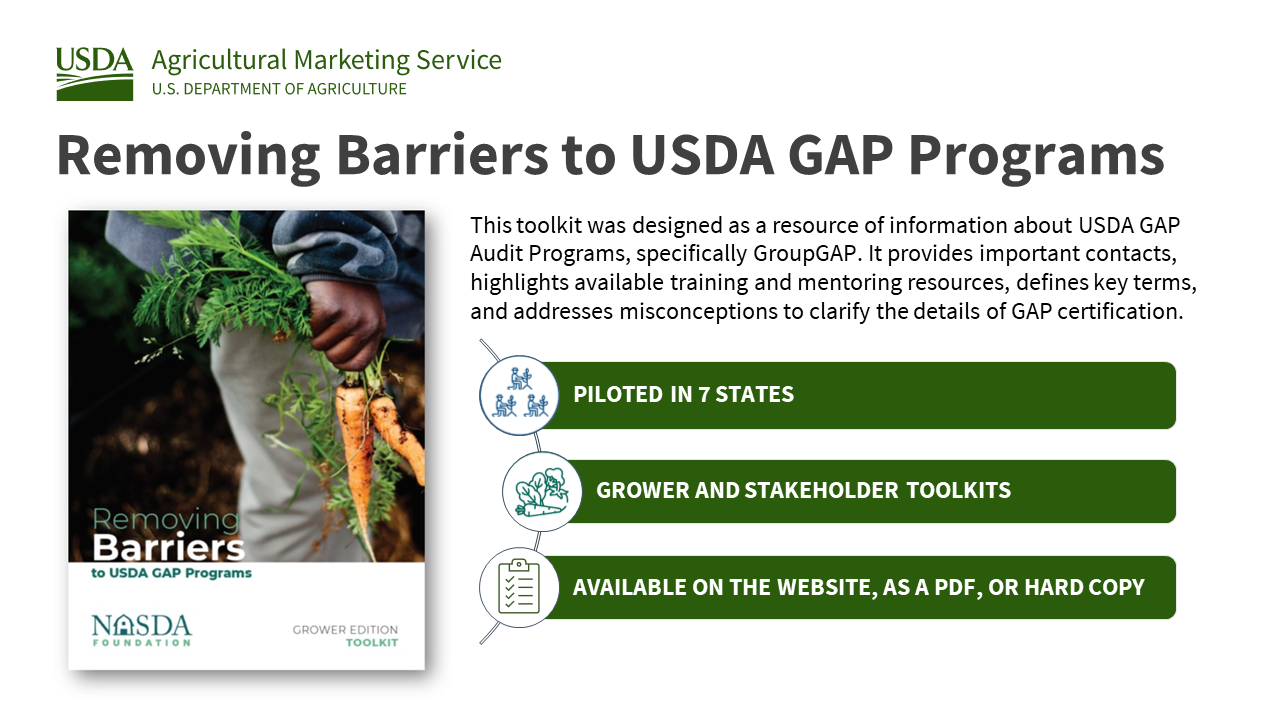Overview
The USDA Good Agricultural Practices (GAP) Program offers a unique way for producers to access markets and verify their use of sound agricultural and food safety practices.
By incorporating good agricultural practices on the farm, a producer can reduce food safety risks while working to expand their business and access new markets. Many growers and handlers demonstrate a commitment to food safety through third-party audits, known as a Good Agricultural Practices (GAP) certification. The USDA GAP Audit Program is a voluntary audit program that was developed to assist growers to meet buyer specifications and/or industry best practices and provide them with better access to markets. However, adoption by growers and acceptance by buyers has been limited.
NASDA Foundation developed a pilot education and outreach program to address the barriers associated with GAP products, focusing on GroupGAP. The toolkit was piloted in seven states (Virginia, New York, Illinois, Tennessee, Texas, Kentucky, and Florida) to bring GAP awareness and outreach to underserved producers. The Grower Toolkit (pdf) explains GAP and GroupGAP, the advantages of the programs, expected costs and fees, misconceptions, the audit process, and relevant resources. The Stakeholder Toolkit (pdf) is intended to complement the Grower Toolkit by serving as a guide to presenting effective GAP outreach that focuses on partnership, resource management, and implementation.

Website Resources

